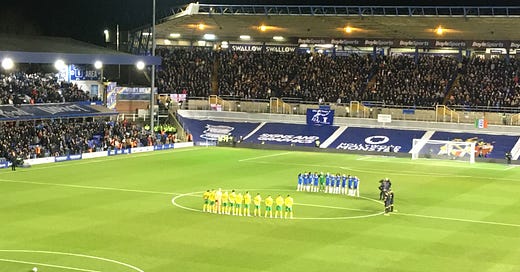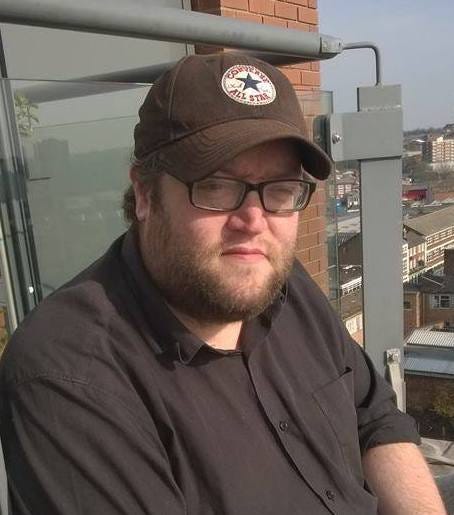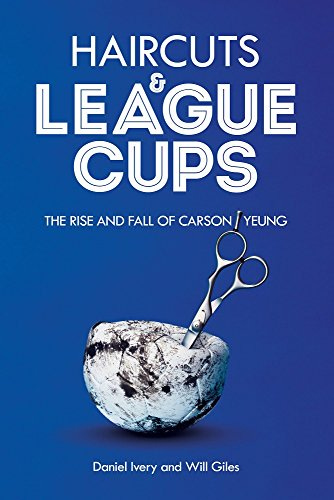In the latest extract from my forthcoming book ‘Where’s The Money Gone - One Fan’s Football Finance Odyssey’, I look at Carson Yeung’s ownership of Birmingham City.
Part One of ‘The Story of the Blues’ dealt with the era of David Sullivan and the Gold brothers. We pick up the story after they sold it to Yeung - a Hong Kong hairdresser and Stock Market investor - for more than £80million.
It’s that transaction which has led me to the hipsterish café at Birmingham’s Ikon Art Gallery with its farmhouse-style tables and the kind of tubular metal chairs I used to sit on at primary school.
I’ve come to meet Daniel Ivery - fierce foe of Carson Yeung and anyone else doing down his beloved Blues, who wrote first on his Often Partisan website and now its successor Almajir.
When Yeung bought a controlling shareholding in Birmingham City in 2009, The Guardian headline writer invoked Winston Churchill, describing the takeover as “a riddle wrapped in a mystery”.
Ivery spent years trying to solve the puzzle, only to discover that like being trapped in some nightmarish computer game, reaching the centre merely unlocked the door to another level of dizzying enigma.
After Yeung’s departure came new Chinese owners Trillion Trophy Asia, when the questions multiplied.
Pic from Almajir.net
Sporting thick-framed glasses and a beard, his arms festooned with tattoos, Ivery leans back and laughs as he admits to sometimes disappearing down an online rabbit hole in pursuit of the answer(s).
He reflects that “sometimes it occupies all my available time and sometimes occupies none of it.
“I go through phases of bingeing stuff. I'm not the kind of person who has to work at it every day [but] I have a moment of inspiration, and the next thing I know it's 4am and I haven't moved from my computer for six hours.”
Ivery’s day job involves helping businesses become more visible on the internet.
Harnessing those tecchie skills in the interests of his boyhood football club has led to an EFL investigation and questions being asked in parliament.
Yet he’s a modest crusader, describing himself “just a simple boy from Chelmsley Wood”, referencing the huge council estate on the edge of the city where he grew up.
He tells me he twice dropped out of university, and downplays his credentials as an investigative journalist: “I'm just a layman. I read things and ask questions, I'm not a financial expert.”
Ivery eventually concedes, “I'm good at finding details and the little things that some people miss. And I'm good at finding stuff out on my own generally.”
In truth, his efforts put to shame what passes for local journalism these days, although it didn’t take much in the way of sleuthing skills to spot that Yeung was a wrong ‘un
“He came in and bid £80million for a club that wasn't worth £25million and the incumbent owners laughed all the way to the bank,” Ivery recalls.
“I don't think Carson fronted up all £80 million quid. He borrowed a load from a company called Kingston Security - £57million if I remember rightly - which he then repaid by selling off some of the shares.
“He only ended up owning 29% of Blues which is really handy because in Hong Kong, if you own more than 30% of the company, you have to pay for the rest.
“But he didn’t want to own it all, he just wanted to own enough to control it.”
The source of Yeung’s wealth was always opaque. It was claimed that after starting out as a hairdresser, he got lucky in the casinos of Macau and invested wisely in the Stock Market.
He certainly lived in the grand manner, paying just under £5m for a top of the range Mercedes Maybach limousine; and just under £50 million for an 88-foot yacht, as well as owning properties in Hong Kong and London.
The Premier League, bumbling around like Clouseau, ignored obvious clues to his dishonesty, including a conviction in 2004 for failing to disclose shareholdings in listed companies.
The League was unbothered because although this was a crime in Hong Kong, it wasn’t against the law in England. There was an Owners and Directors test, designed to sift out rogues and villains, but he sailed through it - the 88 foot yacht no doubt coming in handy.
Yeung was convicted again for the same offence in 2010, but still no sanction followed.
By then, his cover story was starting to unravel, a process chronicled in Ivery’s book ‘Haircuts and League Cups’ which culminated in a trial for money laundering in 2014.
According to evidence presented in court, Yeung’s lavish lifestyle was partly funded by a casino operator in Macau and a man identified by the Hong Kong police as a senior triad leader.
The judge described him as an “habitual liar” and said that £2.8m of laundered money had been used to buy Blues.
This was disputed in court, but to no avail. He was sentenced to six years in jail on five counts of money laundering.
“It was a slam dunk case” recalls Ivery, who travelled to witness the trial.
“The rules about money laundering are so strict in Hong Kong, it's almost guilty until proven innocent, so the prosecution didn't really have to do much.
Yeung said nothing in court to betray the mysterious sources of his income, otherwise, “he would probably have ended up wearing concrete underpants in Hong Kong harbour”.
As it was, “Carson went to prison, did his time, came out, kept his nose clean.”
Ivery drily observes, “he’s still got his house.’
Even after his conviction, the disgraced Yeung continued to retain a significant shareholding in Birmingham until 2016 – but with his assets frozen at the time of the court case, the club was already settling into a long-term slump.
Despite a momentous Carling Cup Final victory against Arsenal in 2011, they were relegated to the Championship later that season and have languished in its lower reaches for most of the years since.
When Yeung finally departed the scene, Blues supporters might have hoped for an era of calm and financial transparency. As if.
(Part Three of The Story of the Blues - Trillion Trophy Asia is coming soon.)
This is an extract from my forthcoming book ‘Where’s The Money Gone - One Fan’s Football Finance Odyssey’.





